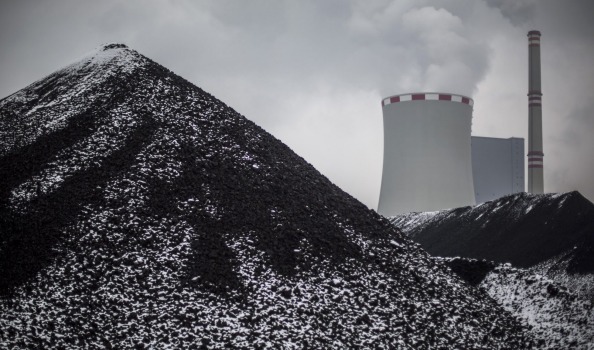Campaigners welcome decision, ask industry laggards to ditch coal as well
Allianz, the world’s biggest insurance company by assets, announced today that it will no longer provide stand-alone insurance coverage for coal power plants or coal mines. The German insurer also announced that it will ban all companies planning to build more than 500 MW of new coal capacity from its investment portfolio. This bold step reinforces the shift of the insurance industry away from coal and increases the pressure on industry laggards to adopt coal exit policies as well.

Heffa Schuecking, executive director of the German environment and human rights organisation Urgewald, says: “The coal industry is the number one driver of climate change, and building new coal plants is incompatible with the goals of the Paris Agreement. We welcome Allianz’s move as an important step towards making the coal industry uninsurable and uninvestable.”
Peter Bosshard, coordinator of the international Unfriend Coal campaign, says: “The insurance industry is uniquely placed to support the transition away from coal, and four global insurers have now decided to shift away from coal. We call on Munich Re, Generali, AIG and other climate laggards in the industry to also stop insuring and investing in coal projects.”
According to the policy announced today, Allianz will no longer offer stand-alone insurance coverage for the construction and operation of coal mines and coal-fired power plants. Other than in exceptional cases, the insurer will also no longer renew existing contracts for such projects. Allianz will continue to offer company-wide policies for coal companies, but commits to completely withdraw from the coal sector by 2040.
Regine Richter, a finance campaigner with Urgewald, says: “It is significant that the world’s largest insurer has set a target of bringing its coal coverage down to zero. Allianz should however commit to a more ambitious sunset period than 2040.”
Allianz also announced measures to strengthen its coal divestment policy today. In addition to companies depending on coal for more than 30% of their business, which it divested from in 2015, the insurer will now also shed its investments in companies which are planning to build more than 500 MW of new coal power capacity. This sets a new standard for the exclusion of coal plant developers. Allianz also announced that it plans to reduce its 30% threshold for the divestment of coal companies to 20% in the coming years.
Lucie Pinson, the European coordinator of the Unfriend Coal campaign, says: “Allianz’s consequential divestment strategy sets a model for other large investors such as Aviva and Prudential. Like other leading insurers, Allianz should, however, include the more than $1 trillion it manages for third parties in its divestment policy.”
Since 2017, AXA, Zurich, SCOR and now Allianz have decided to stop insuring some or all new coal projects, and Swiss Re has announced that it will adopt such a policy soon. So far 16 insurers have divested an estimated $22 billion from coal companies.
Earlier this week, The Paris city council in a declaration called on the insurance industry, whose CEOs will hold their annual meeting in Paris under the guise of the Geneva Association later this month, “to withdraw their support from projects and companies in the coal sector, notably in the European Union and more particularly in Poland.”
Today’s decision by Allianz will add pressure on insurance CEOs to make their businesses compatible with the goals of the Paris Agreement and exit the coal sector.
